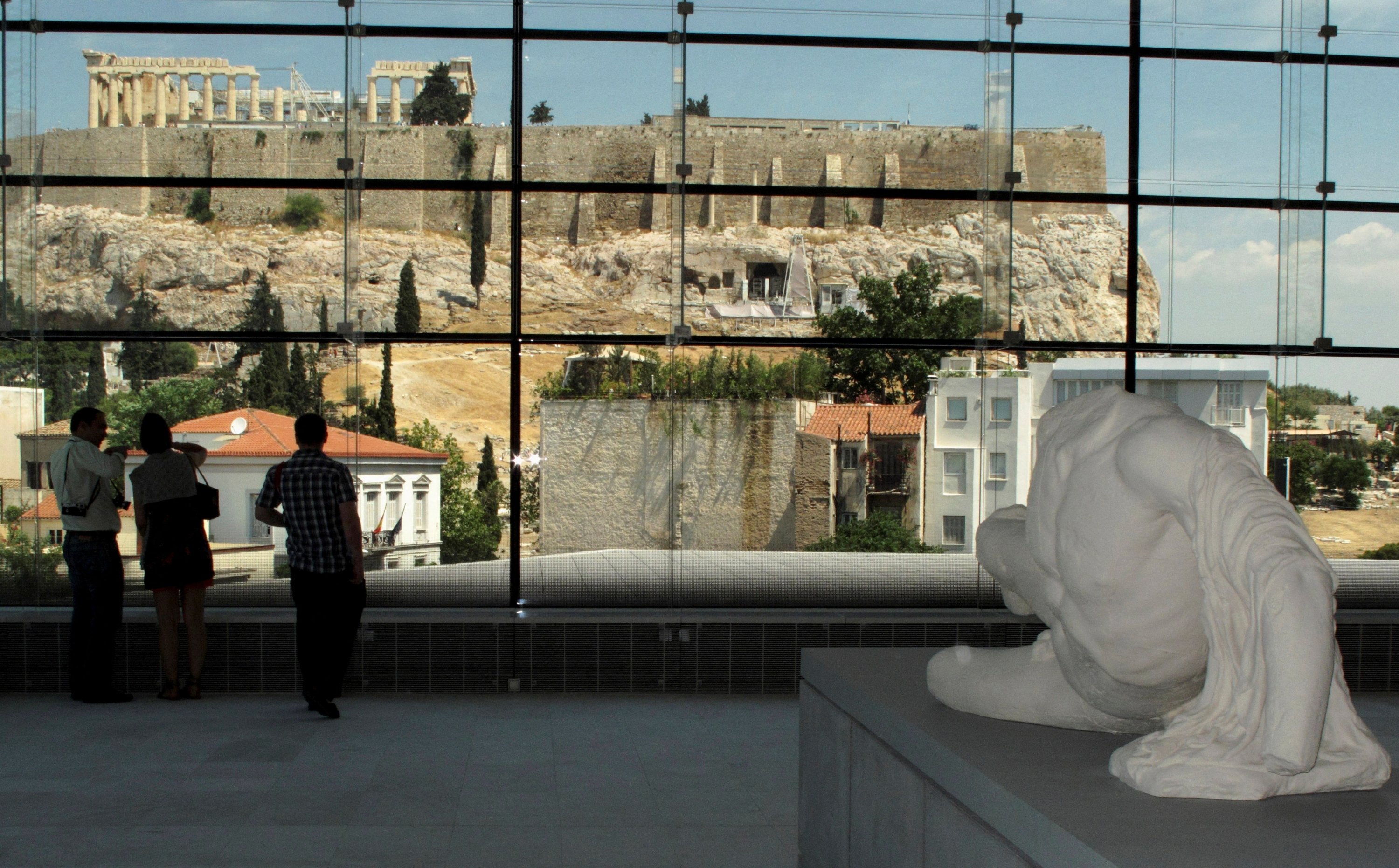© Turkuvaz Haberleşme ve Yayıncılık 2026
Greece, on Wednesday, opened to the public an exhibition of more than 1,100 artifacts, from statues and table games to children's toys, found in an ancient Athens neighborhood during excavations in the area of its modern Acropolis museum.
The objects, unearthed from the foothill of the Acropolis hill that hosts the Parthenon temple, have been restored and are part of a site Greece calls "the museum under the museum," which will be accessible to visitors from July 26.
Everyday items, from storage vessels and cooking pots to weaving tools and needles, are testaments to residents' daily lives over 4,500 years, the Greek Culture Ministry said.

The remains of the neighborhood on top of which the Acropolis museum was built reconstruct a complex of streets, homes with spacious rooms and courtyards, baths and workshops, which have been accessible to visitors since 2019.
"Placed on the southern fringes of the archaeological site, (the exhibition) fits harmoniously into the visitor's journey, contributing to the understanding of people's everyday life," said Culture Minister Lina Mendoni.
More than 1.5 million people annually visit the 14,000-square-meter (16,743.86-square-yard) Acropolis Museum, which is meant to visually connect with the Parthenon and other temples on the Acropolis Hill.
About half of the 160-meter frieze from the Parthenon temple is in the British Museum, while 50 meters of the carvings are in the museum in Athens.
Greece has repeatedly urged the British Museum to permanently return the 2,500-year-old sculptures that British diplomat Lord Elgin removed from the temple in 1806, during a period when Greece was under Ottoman Turkish rule. Mendoni said the new museum was the ideal venue to host the Parthenon in its entirety.
"This museum constitutes the optimal physical and conceptual framework for highlighting, interpreting and understanding its masterpieces," she said
